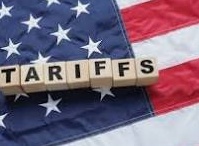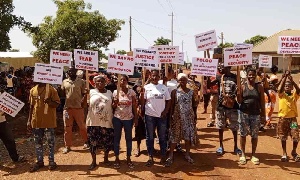Business News of Tuesday, 15 April 2025
Source: www.ghanawebbers.com
Recent United States tariff and the way forward

Ghana faces a challenge with changing tariffs from the United States. An old saying suggests that when drummers change their beats, dancers must adapt. Ghana needs to adjust its approach in response to America's new policies.
China has chosen to retaliate, while South Korea is negotiating. Samuel Okudzeto Ablakwa, Ghana's Foreign Affairs Minister, met with American Ambassador Virginia Palmer about tariffs. However, the press release did not address key issues. A higher-level meeting at the White House is necessary for better outcomes.
South Korea's Trade Minister Cheong In-Kyo is negotiating lower tariffs for his country’s exports to the U.S. Ghana's export value and volume are small compared to countries like South Korea and China. This limits Ghana's competitiveness in negotiations within the global market.
Historically, the Trump Administration has used tariffs strategically. For example, a 25% tariff on Canadian exports led Canada to invest heavily in border security against drug trafficking. Similarly, analysts believe President Trump may demand more from South Korea regarding military costs.
President Trump prioritizes American economic interests over public image or global peace. Given this context, what are Ghana's chances of success at the White House?
President John Dramani Mahama has tasked the Minister for Trade with addressing U.S. tariff issues. The goal is to make Ghanaian exports competitively priced against other nations.
Two main factors influence price competitiveness: exogenous and endogenous factors. Tariffs are exogenous and beyond Ghana’s control. Endogenous factors include power supply and production costs that can be adjusted.
Improving operational efficiency in the power sector could lower consumer prices significantly. Additionally, should Ghana subsidize power for manufacturing while charging higher rates to wealthier consumers? Low energy costs have been crucial for China's industrial growth.
Could tax policies be adjusted to impose higher taxes on extractive industries? Offering tax holidays to export-oriented companies might also help boost competitiveness.
Negotiating tariffs with the U.S., while possible, could risk national interests. How much benefit has corporate Ghana gained from trade agreements like AGOA over two decades?
As President Mahama directed, now is the time for action to create a favorable business environment globally. If businesses receive affordable power and capital, they can thrive internationally.
In conclusion, rather than asking America to change its policies, Ghana should focus on enhancing its own competitiveness in global markets.










